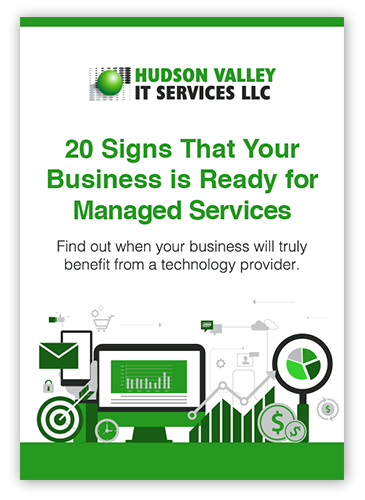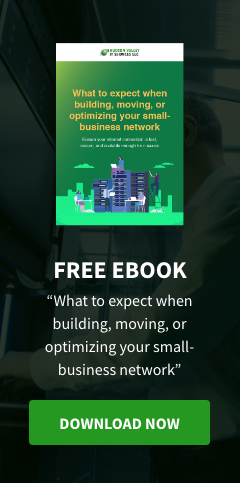Today’s business landscape is littered with companies that can essentially replace the IT departments of large and small businesses alike. These companies or managed services providers (MSPs) offer IT maintenance and scalable cutting-edge solutions such as cloud-based infrastructure, all for an affordable monthly subscription.
But how do you select the right MSP with the best technology opportunities and advantages to take your business to the next level? For one, they have to answer the following 10questions.
#1 What happens if my IT infrastructure goes down?
Today, IT disasters from data breaches to ransomware and outages are inevitable. A business needs an MSP that can help them prepare for these eventualities. An MSP prospect should be able to talk to you about a disaster recovery plan (DRP) in depth, such as the steps needed in the event of a disaster, and other DRP essentials regarding data backup. Look into business continuity, disaster recovery, and data backup so you can ask pertinent questions such as how frequent backups are, how quickly systems and data can be restored, and what is the uptime guarantee.
#2 What will I be paying for?
When evaluating an MSP, you should know exactly what it is you are paying for. Does this prospective partner take time to get to know your needs and goals? Lay out exactly what it is you are looking for and ask them to clarify how they are going to charge you for them. Insist on a breakdown of any lump sums and packages. These terms should then be set in the contract or service level agreement (SLA) so you can protect yourself from hidden or surprise fees. A proper contract should also include the scope and the limits of services.
#3 Will your MSP help my business keep up with cutting-edge technology?
A partnership with an MSP means more than having repairmen fix IT issues. It’s like having a technology resource for your business. Not only should they be able to manage all of your IT needs, but they should also keep up with cutting-edge technology and understand how it applies to your business.
#4 Will you keep me in the loop?
As a businessperson, you can’t be kept in the dark about what is going on with your IT infrastructure. Let the MSP know that you want to be informed about the state of and changes to your company’s IT. Then, decide how you want issues to be resolved. Do you want them to come to you when there is a problem and present solutions, or would you rather they take the reins and handle everything?
An MSP that’s prepared to keep their partners informed will have mechanisms in place to do so. Ask about quarterly, monthly, or weekly reports and meetings with them. Some MSPs even provide admin portals that make it easy to report problems and monitor what is going on behind the scenes.
#5 Are your MSP services flexible?
There is no one-size-fits-all approach to IT. An MSP should be able to give you a plan or suite of services that align with your own business objectives and requirements. For instance, you may only need your MSP to make up for tasks outside the skills and resources of your own IT department.
Download our free eBook!
Read through our free eBook, 20 Signs That Your Business is Ready for Managed Services for a summary of the core IT problems we commonly see before small- and medium-sized businesses make the switch to managed IT services.
#6 Are your MSP services scalable?
Will their services be able to support business growth? You will want a partner that will make expansion easy and affordable, from workstations to employee accounts to locations. This also includes scalable services that can accommodate increased data storage requirements and prepare your small business for development.
#7 How well do your MSP services align with my industry?
As IT needs vary from industry to industry, it’s important to find out if the MSP has a track record in your industry. For instance, if your business is in medical services, you will want to work with one that is an expert in security with an emphasis on HIPAA compliance. Ask if they have worked with businesses similar to yours.
#8 Is your MSP proactive?
The best MSPs don’t wait until something is broken, but take a proactive approach to protecting and maintaining systems. Ask what steps they take to keep your system secure and in tip-top shape. Do they monitor your system for flaws and breaches? Will they alert you to ways you can optimize your IT environment? Do they provide security awareness training to your employees to protect your firm from phishing, malware, and other attacks? This ensures you partner with an MSP that keeps downtime to an absolute minimum.
#9 Are you available 24/7/365?
IT problems don’t have any days off nor happen only during business hours. When something goes wrong, you’ll need a partner that’s able to address a problem as soon as possible to prevent prolonged periods of downtime. Your business needs emergency support or a help desk that’s available 24/7 and with a fast response time.
#10 Do you have references or third-party audits?
Find out about the MSP’s reputation. You can gauge if an MSP is one you can trust by asking questions about longevity, long-term clients, and testimonials. Be sure to ask about third-party certified auditors. They can provide a good basis for the MSP’s reputation as well, as they often provide on-site audit tests that validate controls for issues such as IT security, availability, processing integrity, confidentiality, and privacy.
At Hudson Valley IT Services, we are more than happy to meet with potential partners and discuss a fruitful partnership with us. Get to know what our IT solutions and team of experts can do for your business. Talk to us today.
Like This Article?
Sign up below and once a month we'll send you a roundup of our most popular posts



